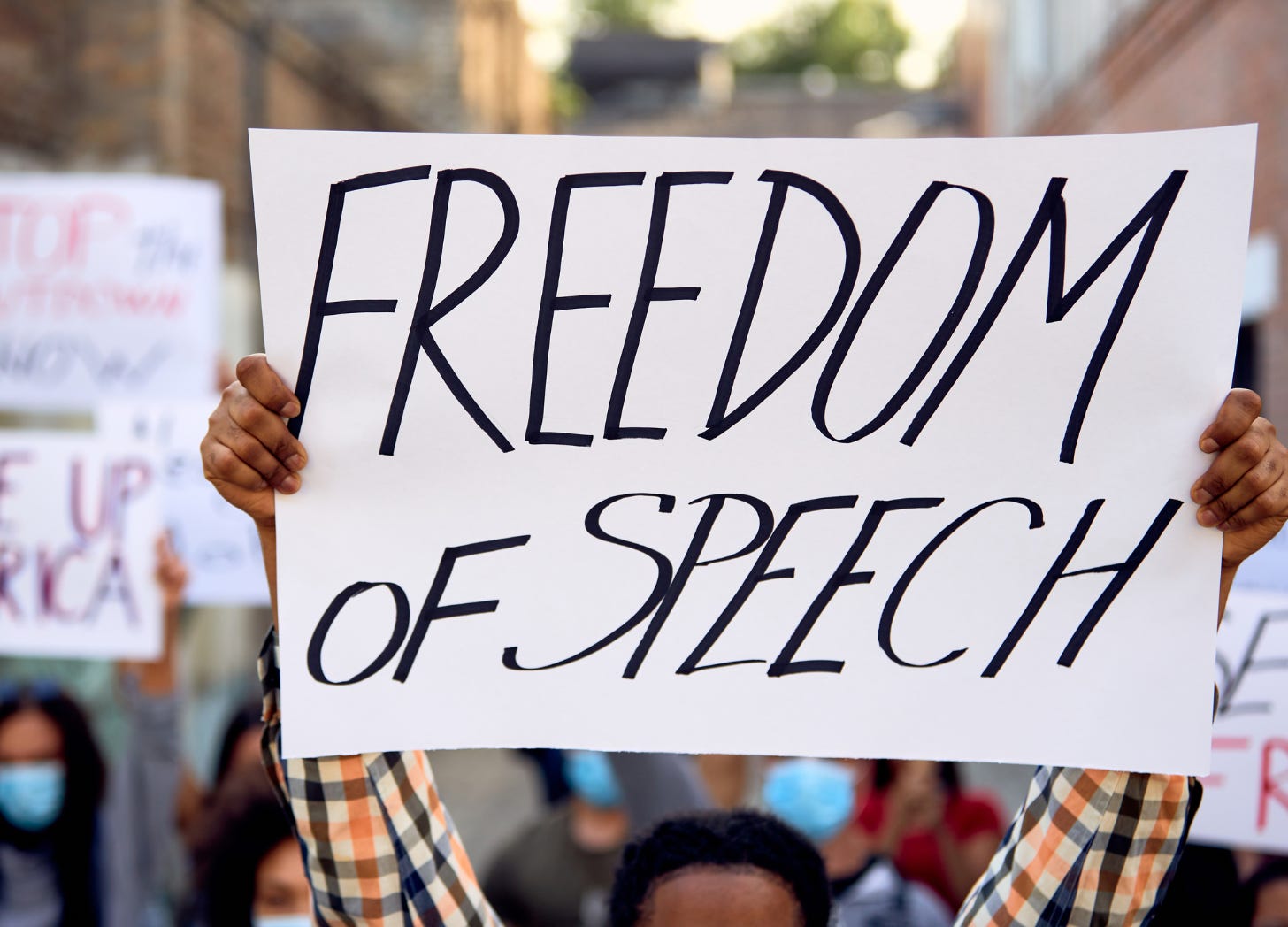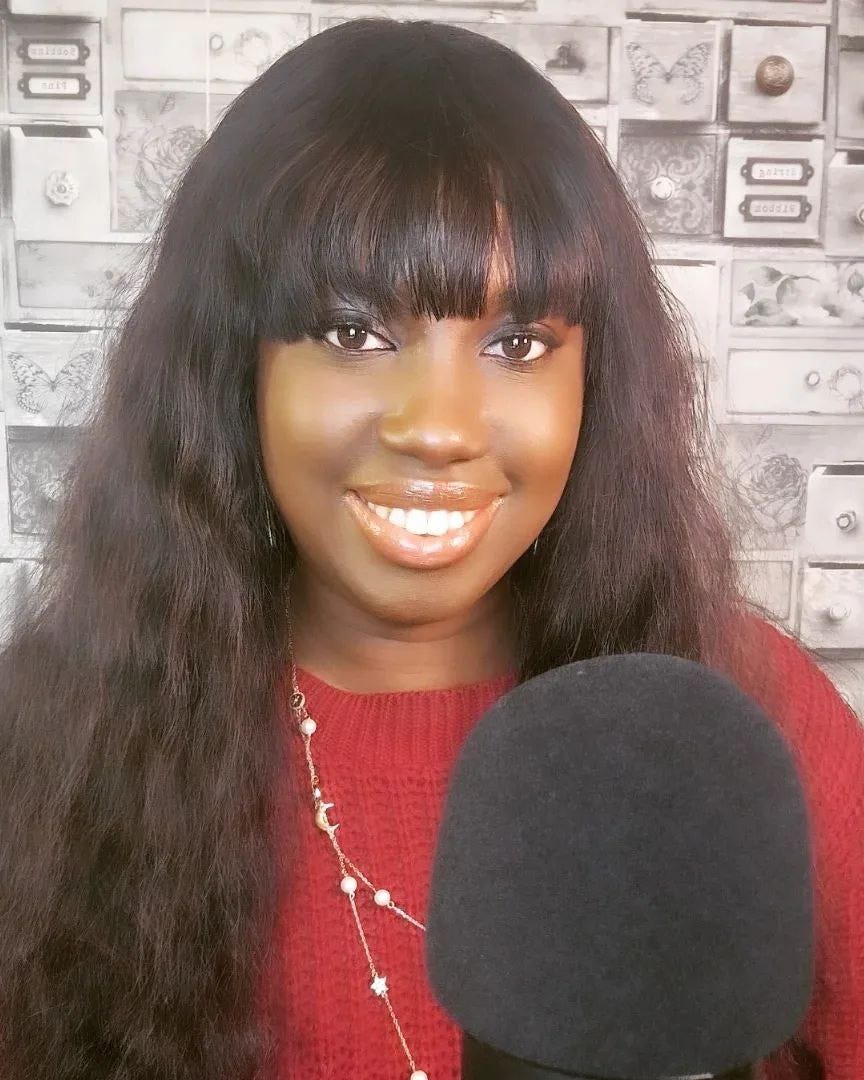Racial slurs are insulting, not criminal
We can challenge offensive speech without resorting to criminalisation
I remember the first time I was called a Bounty. For those unaware, particularly those across the Atlantic who may not be familiar with British confectionery, a Bounty bar is a coconut-filled chocolate bar, dark brown on the outside and white on the inside. I was 11 years old when I first heard the term, about a year after moving to the UK from Nigeria.
My friends thought the way I spoke was odd. They often teased me, for example, about how I answered the house phone. I would greet callers with formalities like 'Hello, good morning,' 'Hello, good afternoon,' or 'Hello, good evening,' depending on the time of day. This was a strict rule set by my father, a man of unyielding principles, especially when it came to how we presented ourselves to the world. In his view, every aspect of life demanded discipline, impeccable manners, and a touch of professionalism—even for us kids. Among his many expectations, answering the phone 'properly' was non-negotiable.
I didn’t see this as an issue at first, but I was quickly proven wrong when my friends began to mock me relentlessly. That’s when the 'Bounty' slur was bestowed upon me. The reason? Apparently, I sounded 'white.'
There were other times I was accused of wanting to be white, whether during my exploration of different music genres or when I dated 'outside my race.' Recently, holding views that supposedly stray from what’s considered acceptable for a black person has earned me titles like Uncle Tom, coon, Oreo, tap dancer, and house negro.
These terms are deeply derogatory. While defenders might claim they are useful for intra-community discourse, they actually serve as instruments of conformity, suppressing intellectual diversity and individual expression within the so-called black community. If a community only accepts you when you think and act in accordance with arbitrary rules, it functions less as a community and more like a cult.
Another racially charged insult that has been in the limelight recently is the term “coconut.” This term is used to describe a person of colour—typically someone of South Asian or other non-white descent—who is perceived as acting in a way that aligns with or favours whiteness.
During a large pro-Palestine demonstration in London on November 11 2023, 37-year-old educator Marieha Hussain joined thousands of others advocating for an end to the conflict in Gaza. At the event, she displayed a placard featuring images of former Prime Minister Rishi Sunak and former Home Secretary Suella Braverman, alongside coconuts beneath a palm tree on a beach. She was charged with a racially aggravated public order offence but has recently been acquitted in court.
There was an outcry from black progressives and others on the left, who were outraged that Marieha Hussain was arrested and charged for simply holding a placard depicting the two politicians as coconuts. In terms of criminalising the term, they were right to be outraged. People should not face criminal charges for offensive speech. However, those who defend these terms and others like them on the grounds that they are simply ways to critique black thought and protect minority communities are being completely disingenuous.
Professor Kehinde Andrews was among those who defended Marieha Hussain and the use of such terms. In a 23-minute video titled "It’s Not a Crime to Call a Coconut a Coconut," he argued that terms like coconut and Uncle Tom originate from genuine political critique rather than hate. At one point in the video, he even went as far to claim that when minorities use these terms with each other, it does not come from a place of hate, but rather from a place of love, intended to help black people recognise when they are acting against the interests of the community.
Sometimes, it’s hard to believe that such people truly believe what they say. Love does not involve restricting someone’s right to think freely or hurling racial epithets when they ‘step out of line’; that is oppression, and there is no love in oppression. Moreover, who determines the interests of a community? What may be a concern for one person might be a non-issue for another.
During the video, Andrews seized the opportunity to hurl certain slurs at others, for example calling Calvin Robinson a ‘house negro.’ This prompted Robinson to report the incident to the police as a hate crime. From a Twitter post, it seemed he did so ironically, aiming to test how the police would respond while highlighting the contradictions among those on the left. These are the same voices that have been demanding stricter laws on racial abuse and hate crimes. They advocate that it’s the impact, not the intent, that matters in discussions surrounding offensive speech. So, when the tables are turned, and they face the same scrutiny they demand of others, it raises questions about their commitment to the principles they espouse. Are they prepared to apply the same standards to themselves, or is their outrage selective?
Labelling someone a coconut, a house negro, or similar terms should not be subject to criminalisation, regardless of the racial background of the person using them. Yet, as Inaya Folarin Iman, director of The Equiano Project, pointed out, “it seems that woke activists are getting a taste of their own censorious medicine.”
Those who use racial slurs to attack others reveal a hypocrisy in their supposed commitment to freedom and equality. These self-appointed arbiters of racial authenticity are quick to accuse anyone with a different perspective of colluding with white supremacy. Yet, they never stop to consider whether they themselves are reinforcing the very power structures they claim to oppose by promoting narratives that often leave minorities feeling disempowered, dependent, and robbed of their sense of agency and self-determination.
Racial insults such as ‘Bounty’, ‘coconut’, or ‘Uncle Tom’ are not merely words; they are weapons of intellectual oppression. However, criminalising speech is not the answer to combating these counterproductive expressions. Even offensive speech can contribute to the crucial societal conversations we need to have, both within and between our communities.
Ada is the Head of Content at The Equiano Project. Subscribe to The Equiano Project YouTube channel HERE.
Inaya Folarin Iman, Director of The Equiano Project, debates Nels Abbey on BBC Radio 4's Antisocial about coconuts, race, and hate speech. You can listen to this spirited debate here.








What an excellent piece of writing: clear, well argued and compassionate. Thank you Ada.
Thank you for this piece, my Nigerian sister. I have been labelled all those as well because apparently I act and sound white, whatever that means.
It never ceases to amaze me that the behaviours or conduct that I get pilloried for by these purveyors of hate are behaviours rooted in decency. For instance, giving up my seat for an older person in the subway, answering ma'am or sir to elderly folks, or speaking English properly without slang.
My question then is: Do these people not realise that by hurling these labels at us, they are invariably arrogating to white people the province of proper conduct and good behaviour? Ironic, isn't it?
Finally, I close by saying that when I first went to the US, my first taste of racism was at the hand of some black American folks because I refused to join their groupthink against the "Man".